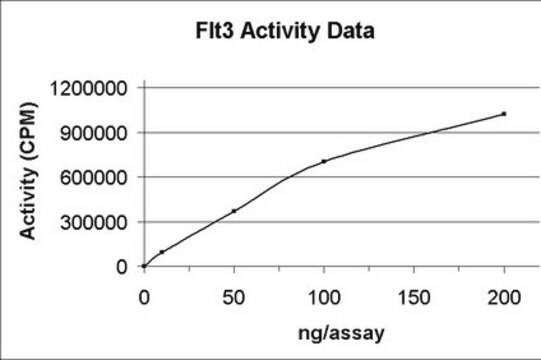OGS3423
PSF-CMV-PURO-COOH-FLAG® - C-TERMINAL FLAG® TAG MAMMALIAN PLASMID
plasmid vector for molecular cloning
Szinonimák:
cloning vector, expression vector, molecular cloning vector, plasmid, plasmid vector, snapfast vector, vector
About This Item
Javasolt termékek
tag
FLAG® tagged
Forma
buffered aqueous solution
molekulatömeg
size 6174 bp
baktériumok kiválasztása
kanamycin
emlős sejtek kiválasztása
puromycin
Replikáció eredete
pUC (500 copies)
Peptidhasítás
no cleavage
Peptid tag helye
C-terminal
Támogató
Promoter name: CMV
Promoter activity: constitutive
Promoter type: mammalian
riporter gén
none
kiszállítva
ambient
tárolási hőmérséklet
−20°C
Általános leírás
About the Peptide Tag:This plasmid contains a c-terminal FLAG epitope tag that can be fused to a gene of interest to allow protein detection and/or purification. The sequence of the tag is: DYKDDDDK.
About the Cleavage Tag:This plasmid does not contain a protease cleavage site.
Promoter Expression Level: This plasmid contains the mammalian CMV promoter to drive gene expression. We have tested all of our mammalian promoters in a range of cell types and CMV is consistently the strongest in those we have studied. However there are many reports of the CMV promoter demonstrating silencing by methylation in long-term culture.
Szekvencia
Analízis megjegyzés
Jogi információk
kapcsolódó termék
Tárolási osztály kódja
12 - Non Combustible Liquids
Lobbanási pont (F)
Not applicable
Lobbanási pont (C)
Not applicable
Válasszon a legfrissebb verziók közül:
Analitikai tanúsítványok (COA)
Sajnos jelenleg COA nem áll rendelkezésre ehhez a termékhez online.
Ha segítségre van szüksége, lépjen velünk kapcsolatba Vevőszolgálat
Már rendelkezik ezzel a termékkel?
Az Ön által nemrégiben megvásárolt termékekre vonatkozó dokumentumokat a Dokumentumtárban találja.
Tudóscsoportunk valamennyi kutatási területen rendelkezik tapasztalattal, beleértve az élettudományt, az anyagtudományt, a kémiai szintézist, a kromatográfiát, az analitikát és még sok más területet.
Lépjen kapcsolatba a szaktanácsadással



